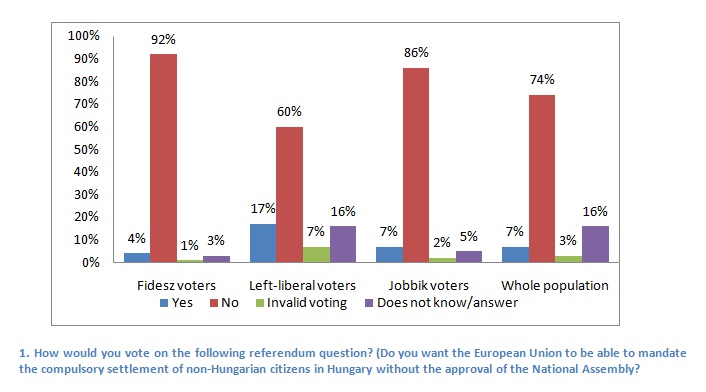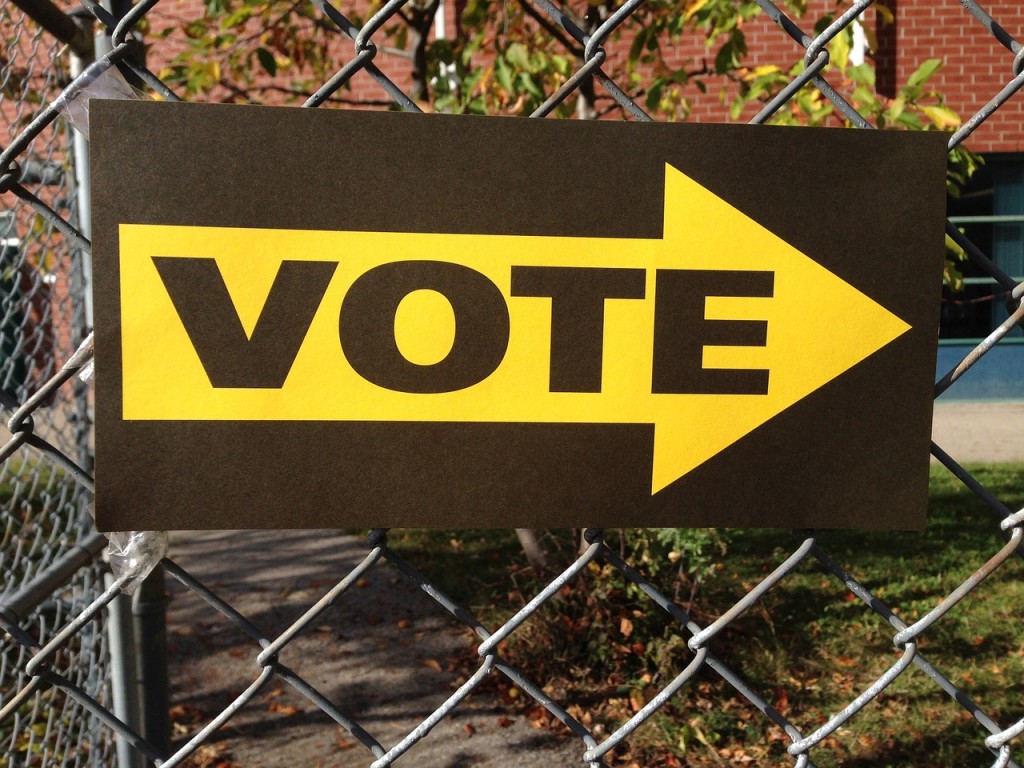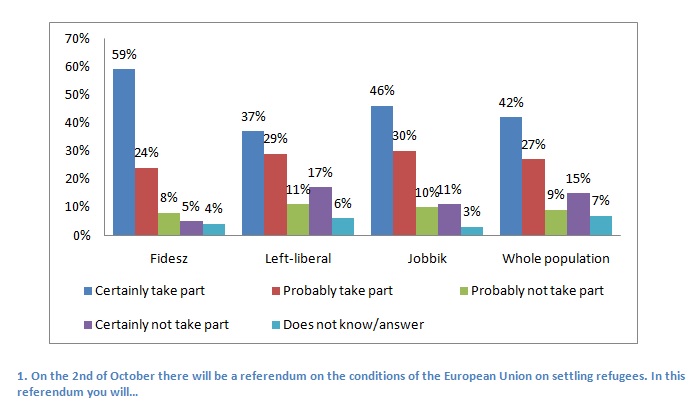Hungarian Prime Minister Viktor Orbán’s government has issued a referendum, often referred to as a ‘quota referendum’, on the mandatory resettlement of migrants, and is urging people to vote ‘No’non October 2. The referendum question is the following: “Do you want the European Union to be able to mandate the compulsory settlement of non-Hungarian citizens into Hungary without the approval of the National Assembly?”. The real question, however, is: What do Hungarians think about the whole idea?
The referendum question itself has been criticized by the opposition as:
-
even if the rejection wins the National Assembly has no means to create a norm that enables them to act against the European Union
and
-
the EU does not mandate such a compulsory resettlement that the government is implying in this question.
Consequently, the country is divided between the political right and the left. The Fidesz-KDNP coalition (right wing governing parties) and Jobbik (far-right populist party) are encouraging their voters to say ‘No’ to the compulsory settlement. In the meantime, the left-liberal opposition and other non-political institutions call either for the boycott of the referendum or casting spoiled votes. The reason why the left-liberal side is urging for these solutions is that the Fidesz party is expected to mobilize more ‘No’ voters than those on the ‘Yes’ side. This means that the opposition’s last chance is to have a lower than 50% turnout.
Previously, the Fidesz government set a higher validity threshold for referenda, so as to prevent opposition aspirations for successful plebiscites. Having a turnout below the validity threshold would mean that the opposition, along with the constituents, managed to turn Fidesz’s tool against the makers. This is achievable both by boycotting and spoiled voting. MSZP (Socialists, largest opposition party) and DK (centre-left opposition party) are encouraging their voters to boycott, while the Hungarian Helsinki Committee for Human Rights is urging to cast spoiled votes. The latter is meant to show that voters are committed to their democratic right to vote, however, they refuse to participate in a referendum that uses a loaded question as a political tool. The following survey shows that the turnout for the October 2 referendum is expected to be higher than that of the 2014 General Elections. This makes the opposition’s endeavour to invalidate the referendum highly important.
Survey Results
According to the survey conducted by the Republikon Institute, the quota referendum on October 2 could be valid: 42% of the eligible voters promise to certainly take part and another 27% will probably do so, as well. It seems that the question does not divide the voters significantly. Even though many opposition parties publicly declared their views and have suggested boycotting the referendum, the majority of left wing voters are still expected to participate.
Moreover, in comparison with other voters the ‘Yes/No’ ratio also does not differ substantively. The validity of the referendum might depend on the left wing voters though. As the majority of MSZP and DK constituents would still want to take part in the referendum, it appears that neither of them managed to reach out to their voters so as to come up with messages that resonate with their voters’ ideas. If these parties successfully convinced their voters about the utility of the boycott, the ratio of those promising to take part in the referendum would significantly decrease.
Along with the party preference, this survey revealed the future voting schemes. Consequently, the majority of those preferring to see a Fidesz-KDNP government from 2018 will certainly take part in the referendum (59%) and an additional 24% will probably take part. Thus 83% of Fidesz supporters are likely to participate. Meanwhile, on the other side of the spectrum, the percentage of the left-liberal supporters likely to participate is only 66%, out of which 37% will certainly vote. Jobbik supporters are between these two extremes as 76% is expected to take part and 21% anticipating not going. While on the left side of the spectrum 28% is likely not to take part with 17% certainly not voting, among the Fidesz voters this number is only 13%. Therefore, 69% of the total population is likely to participate while 24% is planning not to take part.
 ‘No’ votes are in majority in all three voting groups, that is Fidesz, left-liberals, and Jobbik. The percentage is highest among the Fidesz voters with 92%, followed by 86% ‘No’ votes among Jobbik supporters, and 60% identifying themselves with left-liberal views. Even though ‘Yes’ votes are in a great contrast with the latter group, the distribution remains the same; only 4% of Fidesz voters expected to vote ‘Yes’, supporters of Jobbik voting 7%, while 17% left-liberal voters will answer ‘Yes’. Spoiled voting is almost immeasurable among Fidesz and Jobbik supporters, while on the left-liberal side 7% is planning to do so. Surprisingly this group has the highest percentage of uncertain voters, who are unsure of how to answer the survey question. Nevertheless, this might come down to the fact that they are unwilling to take part, thus not having to answer the question.
‘No’ votes are in majority in all three voting groups, that is Fidesz, left-liberals, and Jobbik. The percentage is highest among the Fidesz voters with 92%, followed by 86% ‘No’ votes among Jobbik supporters, and 60% identifying themselves with left-liberal views. Even though ‘Yes’ votes are in a great contrast with the latter group, the distribution remains the same; only 4% of Fidesz voters expected to vote ‘Yes’, supporters of Jobbik voting 7%, while 17% left-liberal voters will answer ‘Yes’. Spoiled voting is almost immeasurable among Fidesz and Jobbik supporters, while on the left-liberal side 7% is planning to do so. Surprisingly this group has the highest percentage of uncertain voters, who are unsure of how to answer the survey question. Nevertheless, this might come down to the fact that they are unwilling to take part, thus not having to answer the question.




